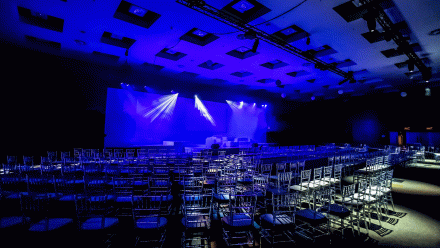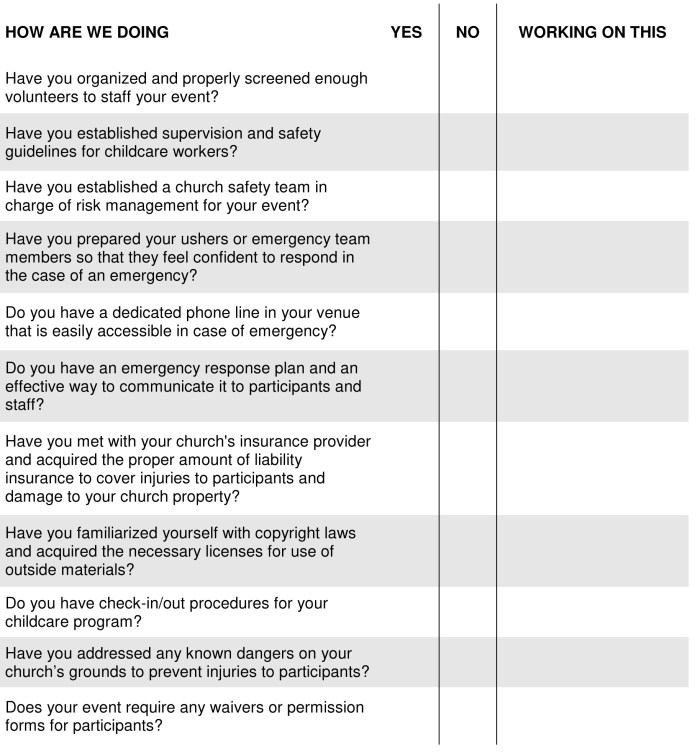Use this event planner checklist to ensure your church is fully prepared to host a successful event.
Perhaps God has blessed your ministry with the vision and space to practice hospitality and put on a big event. Whether it’s a national conference or a smaller-scale event like a carnival night for your local community, opening your church’s doors to non-members presents many logistical challenges.
Why an Event Planner Checklist is Essential
Planning a large event requires foresight and meticulous attention to detail. Even the most well-organized events can face unforeseen challenges. Unfortunately, the more people you bring together in one place, the higher the probability of unexpected situations occurring. You might encounter uninvited guests, weather-related disruptions, or even emergency situations that require immediate action.
But take heart—through proactive risk management and thorough preparation, your church can ensure a smooth event experience. By using an event planner checklist, you’ll be equipped to handle any scenario with confidence.
Church Event Planner Checklist
Here’s a comprehensive checklist to guide your event planning process:
1. Define the Event’s Purpose and Goals
- Clarify the purpose of the event and expected outcomes.
- Identify the target audience and estimated attendance.
2. Secure Necessary Permits and Approvals
- Verify zoning and occupancy restrictions.
- Obtain permits for food service, amplified sound, or special activities.
- Confirm fire safety compliance with your local fire department.
3. Plan the Venue and Logistics
- Reserve and inspect the event space.
- Confirm seating arrangements, parking availability, and accessibility features.
- Set up a clear signage system to direct attendees.
4. Budget and Fundraising
- Create a budget covering rentals, permits, catering, and other costs.
- Consider sponsorships or fundraising to offset expenses.
5. Safety and Emergency Preparedness
- Develop an emergency action plan with clear evacuation routes.
- Ensure first aid kits and medical personnel are available.
- Coordinate with local law enforcement for crowd control, if necessary.
6. Staffing and Volunteer Coordination
- Recruit and train volunteers for registration, security, and hospitality.
- Assign roles and responsibilities in advance.
7. Marketing and Promotion
- Utilize social media, email newsletters, and flyers to spread the word.
- Encourage RSVPs to gauge attendance numbers.
8. Technical and Audio-Visual Setup
- Test microphones, projectors, and other AV equipment.
- Have backup power sources in case of outages.
9. Catering and Hospitality
- Plan food and beverage offerings based on dietary restrictions.
- Ensure proper food storage and safety measures.
10. Post-Event Follow-Up
- Send thank-you emails to attendees and volunteers.
- Gather feedback through surveys for future improvements.
Frequently Asked Questions (FAQs)
What should be included in an event planner checklist?
An event planner checklist should cover logistics, budgeting, safety measures, volunteer coordination, marketing, and post-event follow-up.
How can churches improve event security?
Churches can improve security by coordinating with local law enforcement, training volunteers for emergency response, and having clear crowd management protocols.
What are the most common challenges in church event planning?
Common challenges include unexpected attendance surges, technical issues, security concerns, and last-minute venue restrictions.
How far in advance should a church plan a large event?
Churches should begin planning large events at least 6–12 months in advance to secure venues, permits, and key logistics.






